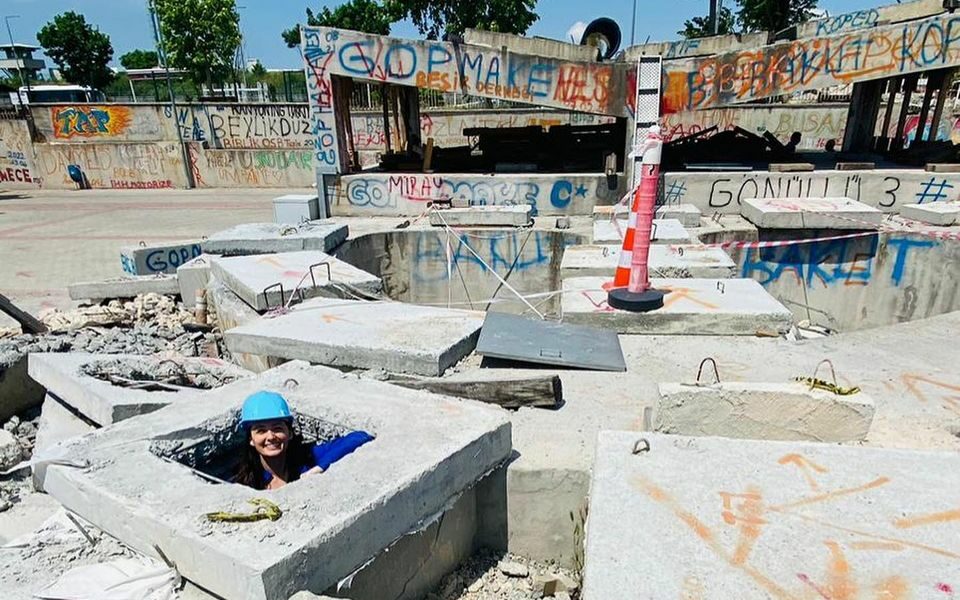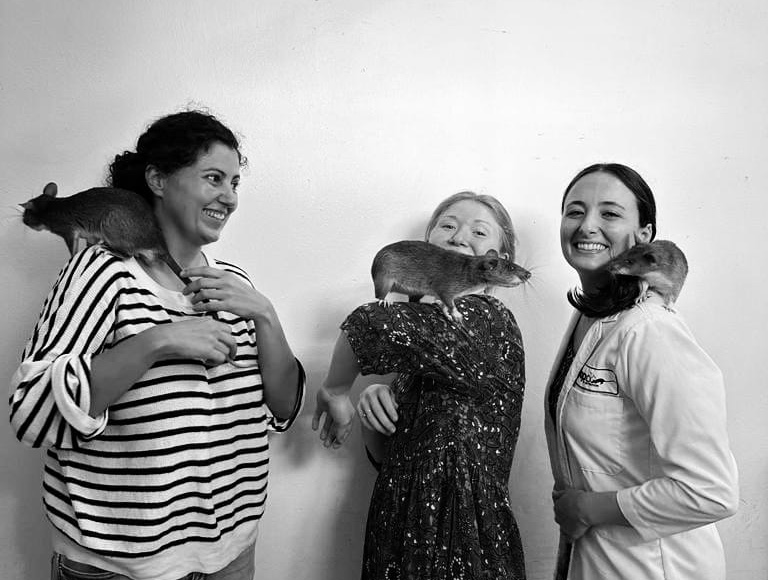International Day of Women and Girls in Science
In honor of International Day of Women and Girls in Science, APOPO spotlights the exceptional work of our researcher in Morogoro, Tanzania, Dr. Danielle Giangrasso.
With her expertise in Psychology and Neuroscience, Dr. Giangrasso takes us through her fascinating journey into the realm of science. Her in-depth interview reveals the innovative endeavors and unique challenges faced by women in STEM and focuses on her role in advancing APOPO’s mission through groundbreaking research and the training of African giant pouched rats for life-saving search and rescue missions.
Celebrate with us as we highlight Dr. Giangrasso’s contributions to science and the empowerment of women and girls in the field.
What is your scientific background?

I have a BSc in Psychology and a PhD in Neuroscience. I didn’t have the most traditional path into Neuroscience, so I worked in as many different labs as I could. From tracking eye movements, to using brain stimulation in stroke recovery, to measuring brain function during spiritual practices, all of these experiences provided me with different windows into how fascinating the brain-behavior relationship is. For my PhD, I studied the neurobiology behind how certain modes of behavioral control are impacted by disease, such as addiction and Parkinson’s. As this research involved training rats and studying their behavior, joining APOPO was a fitting, yet unique and challenging, next step in my career.
Why did you choose to become a scientist?
I chose to go into science because it requires you to think creatively, continually learn new things, and question what you already know, which is a really exciting place to be. There’s also no “failing” in science- no matter what the results are, our work always takes us one step closer towards uncovering the truth and better understanding the world around us.
How did you choose your field of study?

I chose behavioral neuroscience because I was amazed by how you can take a single behavior and study it from so many different levels in the brain – from the microscopic level of genes and proteins, to the level of neural networks, all the way up to how the brain functions as a whole. I also found it interesting that the field of neuroscience, essentially, is just a bunch of brains studying how brains work.
What are you working on at the moment?

I’m currently leading the RescueRATs research project at APOPO, where we are training rats to find trapped survivors in collapsed building sites following urban disasters. Our rats can search for humans and communicate when they have found someone by pulling a switch on their harness. Right now, I’m designing advanced training scenarios to prepare the rats for real-life urban disasters while also organizing operational trials, which will be held in Turkey later this year.
How does your family feel about your career choice (and moving to Tanzania)?
While this move abroad has been challenging for my family, they have given me nothing but support and encouragement, reminding me that it’s important to live my life as fully as I can. I am so grateful, and inspired, by them.
What challenges have you faced as a woman in STEM? And how did you overcome them?

I’ve faced a lot of challenges as a woman in STEM, unfortunately. From seeing how respect can be automatically granted to male scientists but needs to be earned by women, to how women are unfairly labeled as “sensitive,” to the mixed advice that you need to take up space but also stay modest and not stand out too much. I’ve even had a female professor say that she didn’t expect some of her female students (myself included) to do well in her course because we presented too feminine. These biases and prejudices are very pervasive and, if you’re not careful, can start to be internalized over time.
I’m still navigating how to best overcome these challenges. So far, it has been helpful to remember that, if someone treats you poorly or tries to make you feel small, it is simply a reflection of them, not a reflection of you. It’s also important to foster your own sense of respect and competency, and to not look to others for this. Putting these ideas into practice has given me a good foundation to respond to instances of sexism while staying focused on my own growth.
If you could give advice to young girls in STEM, what would that be?
I would say to follow your interests, take risks, and, above all, learn to trust yourself. All of your experiences will come together to lead you to new and unique places, so enjoy the process!

